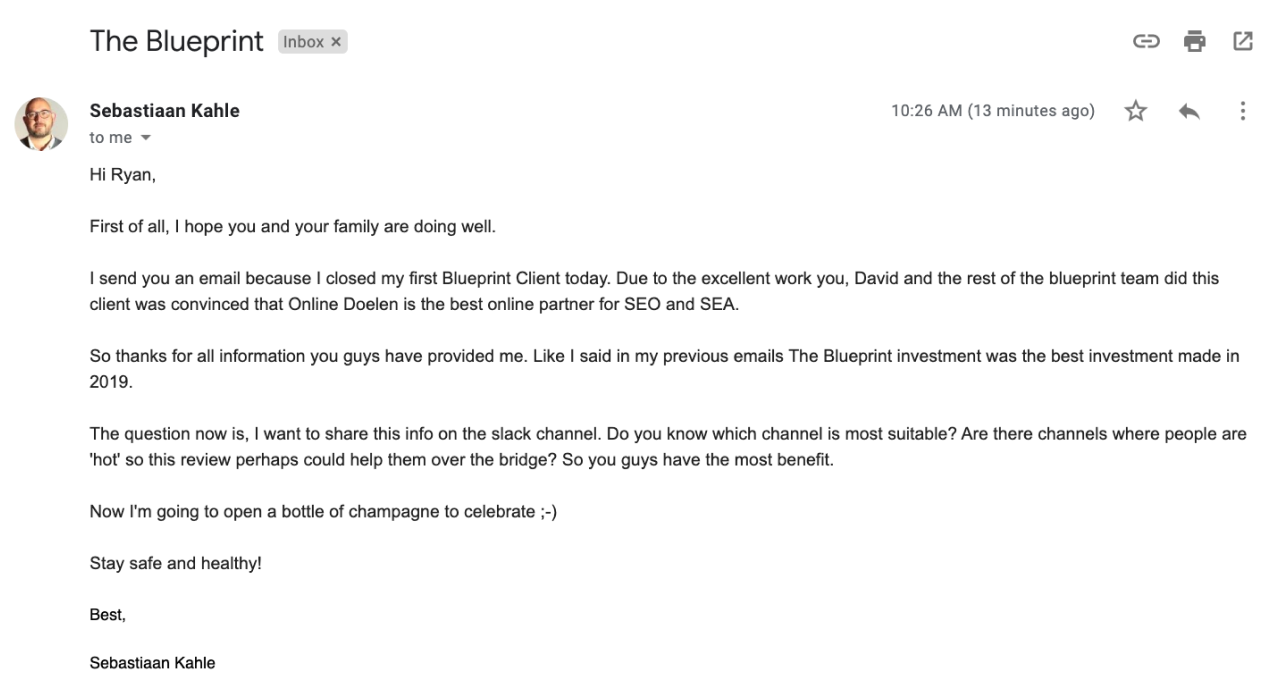Table of Contents
It’s really, really hard to scale an agency with low retainer clients.
Don’t get me wrong, when you’re first getting started, take any work you can get.
But as you build your practice, improve your service and get more experience, you’ll realize you need to get paid more to deliver a higher quality service.
You should strive to increase your retainer size by closing larger clients. This article will cover my tactics to close “high ticket” deals and how to get larger agency clients.

Want to master the agency sales process? Check out our Agency Sales Bootcamp.
When it comes to agency high ticket sales and getting bigger clients, it comes down to 3 main things:
- Attracting larger clients
- Closing the sale
- Delivering results after the work is sold
Today, we’re going to talk about all 3.
But before we dive into how to attract, close and deliver results for bigger clients, it’s important to break down the benefits and drawbacks.
Small Clients vs Big Clients
Depending on the desired layout for your agency, small clients may be more fitting than big clients. Regardless, there are pros and cons in working with both.
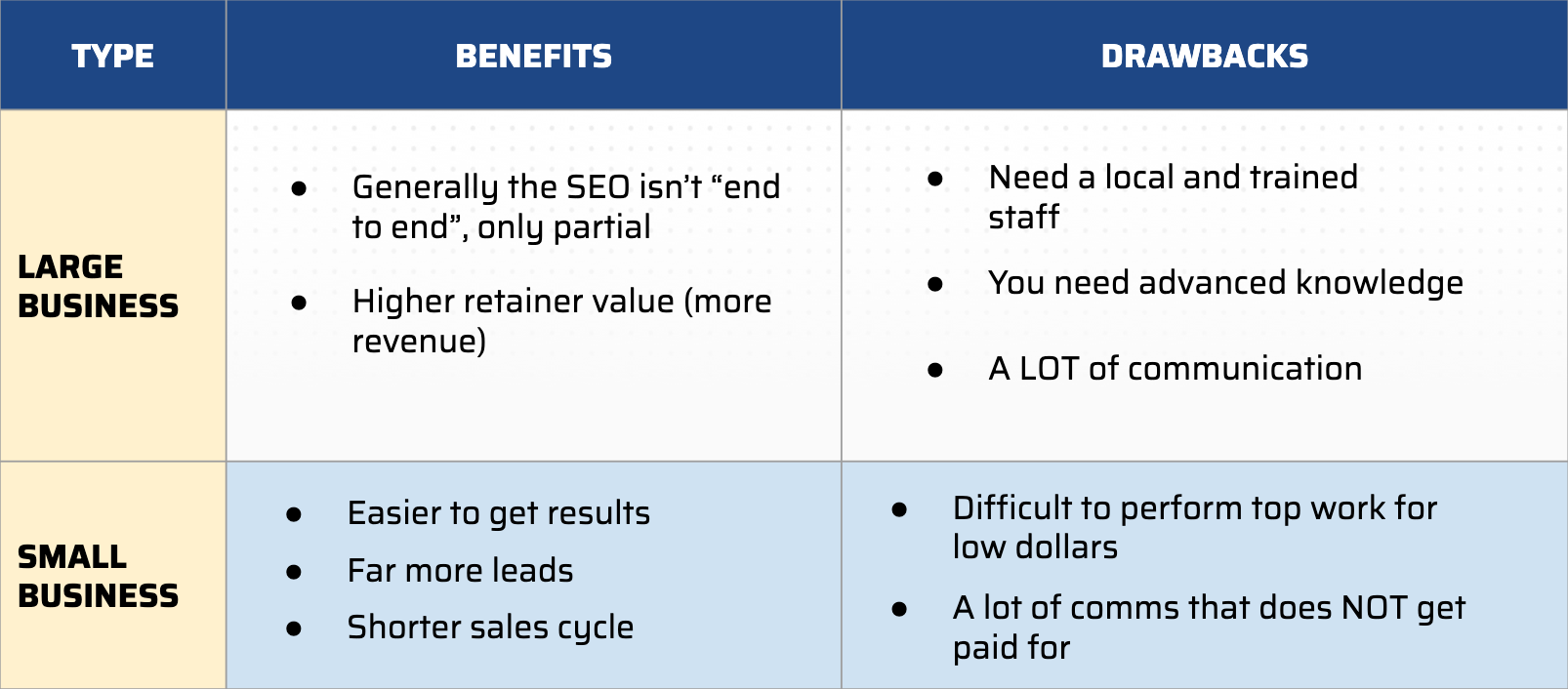
Benefits of working with big clients
- Generally the SEO (or your service) isn’t “end to end,” only partial. This means that you can offer one specific service (link building, content creation, etc) instead of offering multiple services for a single client because larger companies tend to have a specific problem that needs to be solved, not multiple.
- Higher retainer value (more revenue). This means you get paid more.
Although big clients are generally what everyone wants, there are drawbacks associated with big clients.
Drawbacks of working with big clients
- You need a local and trained staff. You can’t pitch a big company without having a highly trained local staff.
- You need advanced knowledge. This takes time and experience to develop.
- There’s a lot of communication involved. Larger agreements require more hand holding, meetings and frequent communications. You’ll need full time account or project managers to handle this.
Benefits of working with small clients
- Much easier to deliver results. There’s generally a lot less competition for smaller companies, you can turn around results much quicker.
- There’s way more leads. There’s a lot more smaller clients available in the market, you can generate more leads.
- Short sales cycle. You can do a one call close with small clients but not possible with bigger clients.
Drawbacks of working with small clients
- Difficult to deliver high quality work for low dollars. Regardless if you’re working with a small or big client, you need to deliver results. But it’s harder to deliver results if you’re not getting paid a premium.
- A lot of communication that does not get paid for (aka scope creep). Scope creep is when there’s a lot of extra work that you’re not getting paid for (i.e., when a client is constantly emailing you).
So, why bother with big clients?
Scaling.
The effort you put into small clients is not commensurate with the compensation.
With that said, let’s talk about the first part of attracting big clients which is how to get their attention.
1. How to get their attention
It’s important to understand that business development cycles change based on the type of client you’re pursuing.
Small businesses have a short cycle. They’ll likely Google search a few agencies, set some interviews, then hire the best one.
Large businesses don’t operate like that. Courting a large company can take months to years, depending on their current contractual obligations and contract award cycles.
These companies will issue an RFP (request for proposals) to a select list of agencies they’d like to hear from – it’s critical to get on this list.
Their selection process doesn’t start with a Google search of local SEO companies – you need to be on their radar. Here’s what I suggest…
a. Start by understanding your target audience
When you’re selling to small businesses, you’re likely selling directly to the business owner.
When you’re selling to large companies, you’re selling to their internal marketing teams.
C suite executives at large companies are not involved with the day to day of their company’s marketing. Instead, they have an entire marketing department with intelligent people handling that.
Often times, there’s too much work for an in house team and they require agency support.
It’s the internal marketing teams, not C suite executives, who are responsible to find and vet qualified agencies.
This requires a shift in your approach to lead generation. You have to solve problems for marketing professionals, not business owners.
b. Then focus on building a unique value proposition
If you’re a new agency competing for big contracts, you better have something special to offer.
I mean, why would someone pay you $50,000/month?
What is the unique value your agency offers?
You need to figure out a way to stand out in the market if you want to compete.
For example…
Proprietary deliverables or in house software
Our agency developed a number of tools and deliverables to demonstrate unique capabilities to the market. The key here is creating something that speaks to the needs of your target prospect.
Our agency’s Total Addressable Market Analysis was developed to find the total keyword universe for brands to use as a means to understand their total market potential in organic search. This deliverable has driven dozens of leads from large companies who want us to run it for them.
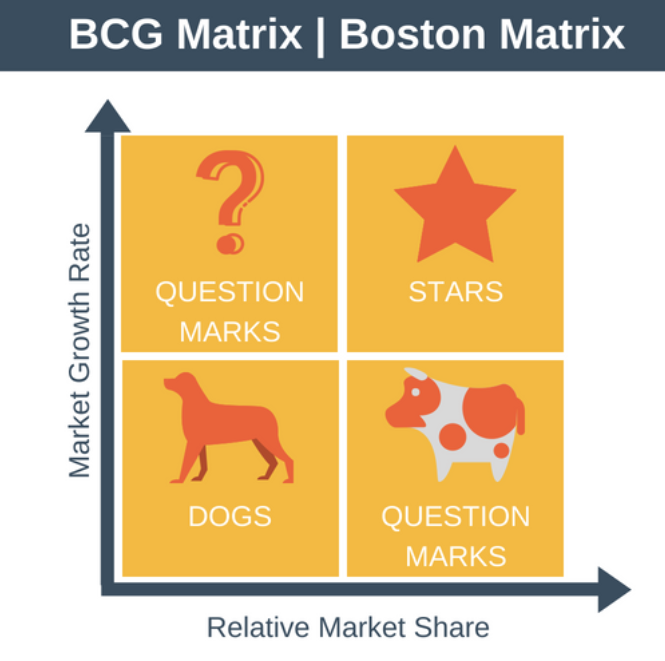
Boston Consulting Group has made a fortune selling their corporate planning framework by leveraging it as a unique deliverable their consultants were trained to execute.
Personal / agency brand with unique knowledge
Companies are willing to pay a premium if they’re hiring an agency who has unique insight into marketing – this is generally personified via a “personal brand“.
Take Gary Vaynerchuck as an example. Vayner Media have massive accounts with companies like Budweiser, TBS and GE, all of which came from the content he’s created.
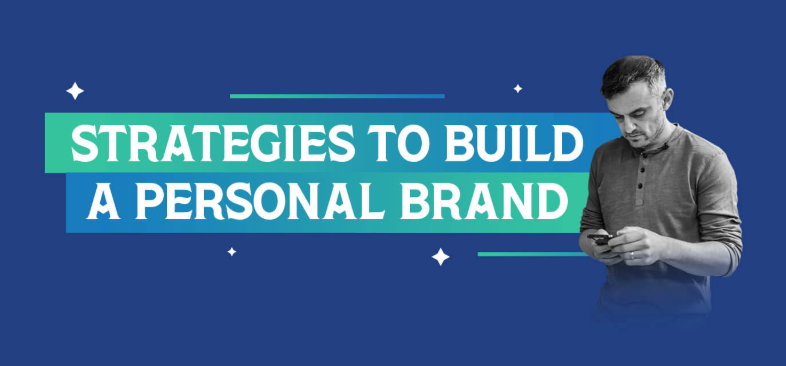
Does that mean you have to start Snapchatting your entire life?
No, absolutely not. But if you take this approach, you need to figure out a way that you can communicate your expertise.
Some ways that I’ve used:
- Webinars
- Speaking engagements
- Publish a book
Publishing my content as videos and hosting on YouTube has the largest driver of large agency leads for me. It’s a powerful way to demonstrate my knowledge on complicated marketing topics, while “providing value” to my target audience.
Demonstrate proven results
No matter who you’re trying to attract as a client, results sell.
Take the time to document any client successes you’ve had. This is no time to be humble, show off and dive deep into the specifics of the case study.
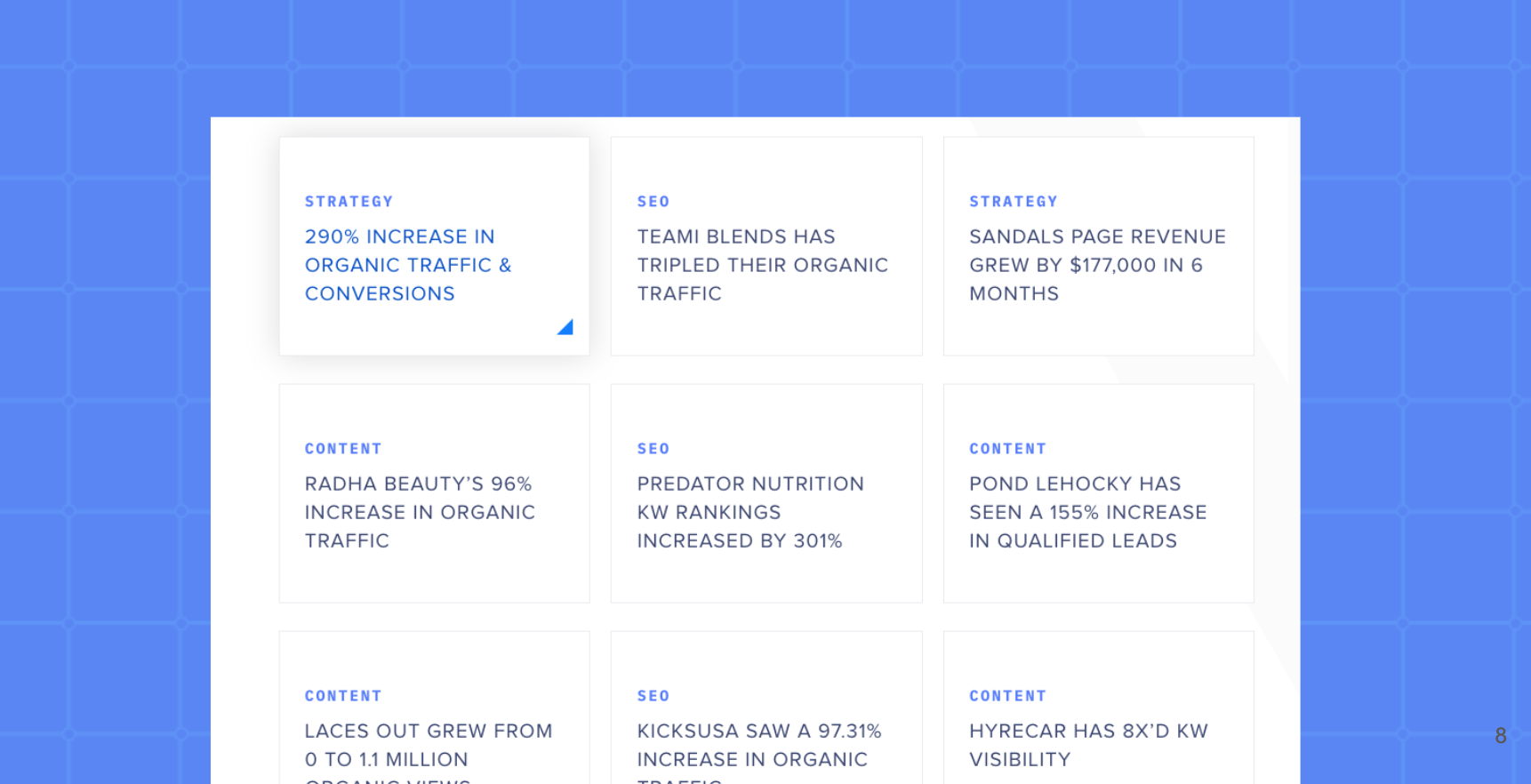
You should also spend time grooming your online reputation. Reviews on site like Clutch, Google My Business and Facebook go a long way to build trust with prospects.
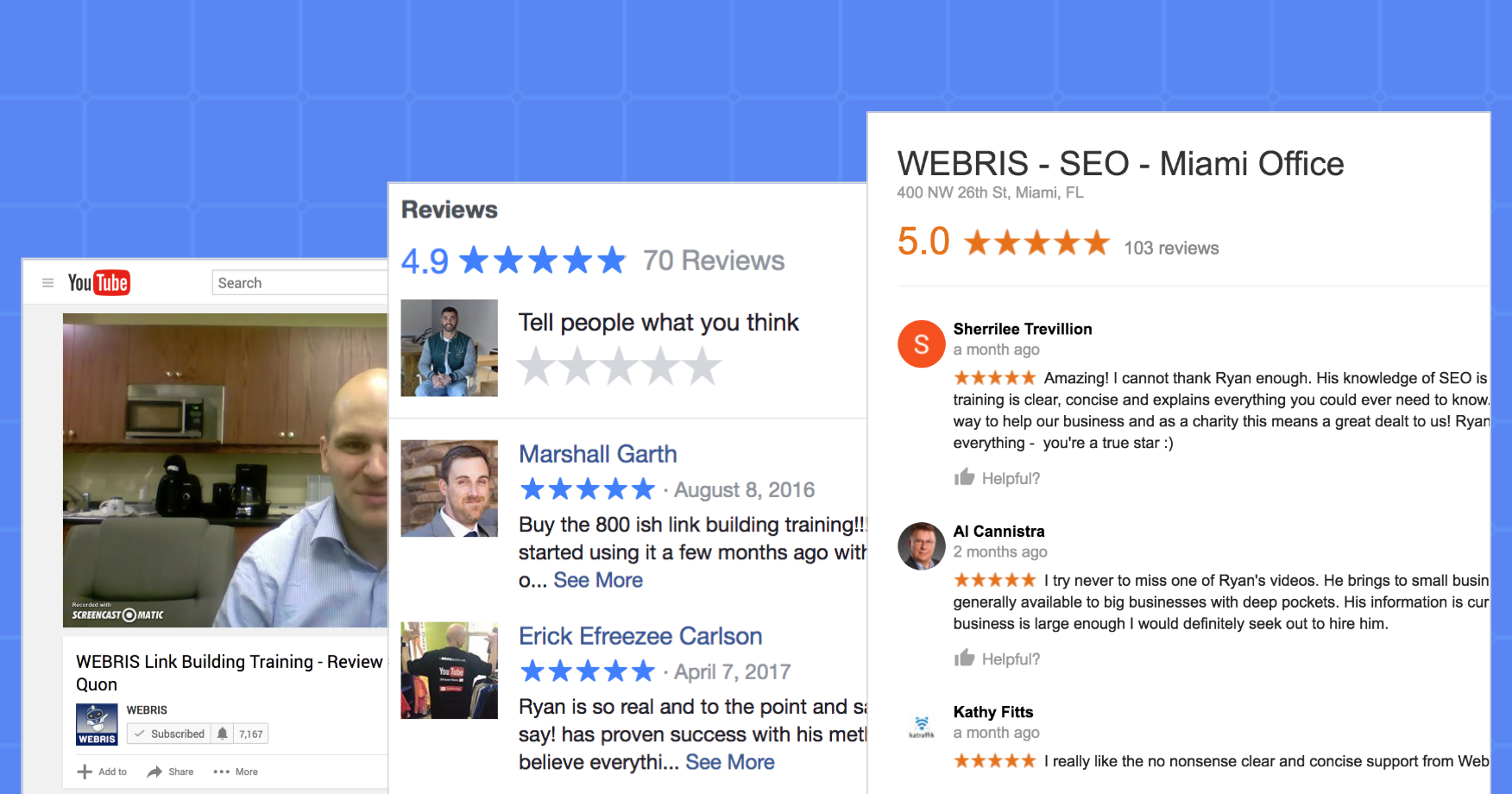
This requires active outreach to happy clients – they won’t leave reviews unless you ask them to.
c. Get referrals
A referral is (and will always be) the strongest way to generate new business, especially large contracts.
Big companies aren’t going to Google to find marketing agencies, they’re being introduced through people they trust.
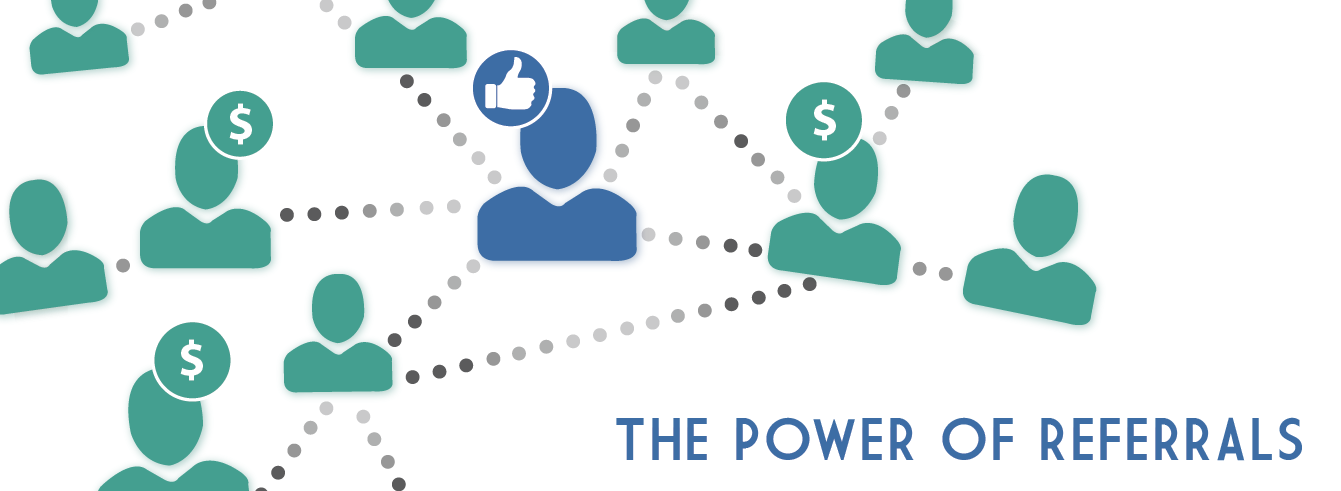
These referrals can come from a number of places:
- Networking. Going out and pounding the pavement at industry events, expos and meetups. Don’t underestimate the power of in person networking, it can pay off huge dividends if you hustle.
- Volunteering at charities. Find the companies you want to work with and the charities they are involved with. Give your time to them, support their events – through there you will meet influential people.
- Happy clients. Just running a simple survey to happy clients and asking them for referrals goes a very, very long way and is by far the fastest way to generate new clients.
In addition to referrals, look for ways to get industry recognition.
d. Compete for industry recognition
Industry awards are bullshit – they’re often given to agencies based on relationships, politics or because the winner flat out paid for it.
Despite that, awards do bring a certain level of prestige – they put you in an elite club.
Anyone can apply for awards, you just need to find them and go through the application process.
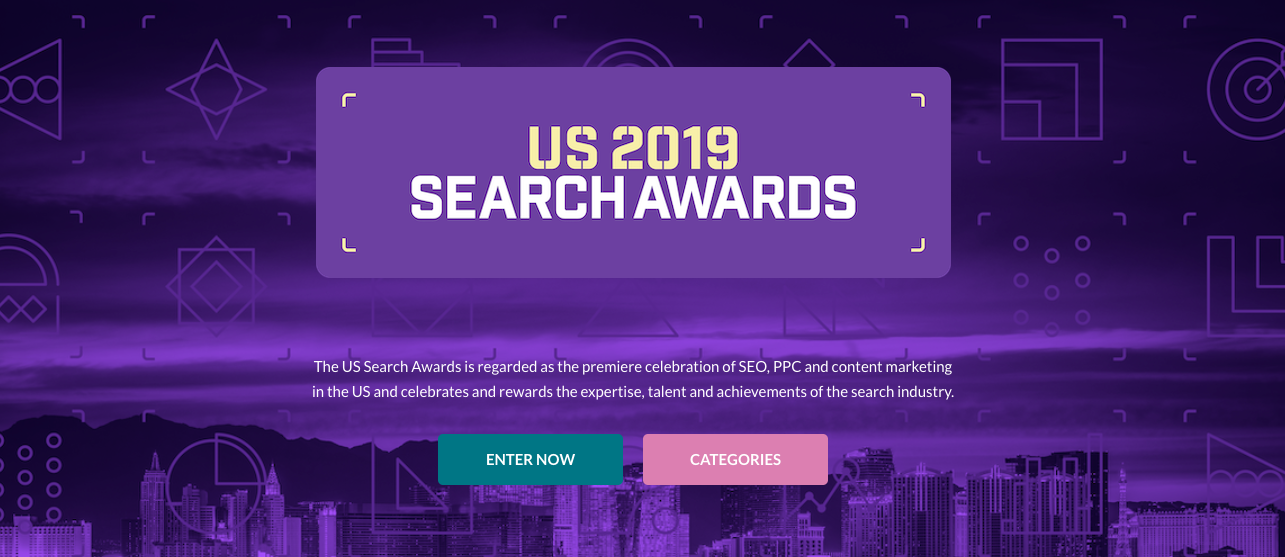
e. Targeted outbound sales
I love inbound traffic – but a lot of the leads that it generates aren’t qualified.
Outbound sales lets you target the exact companies you want to work with.
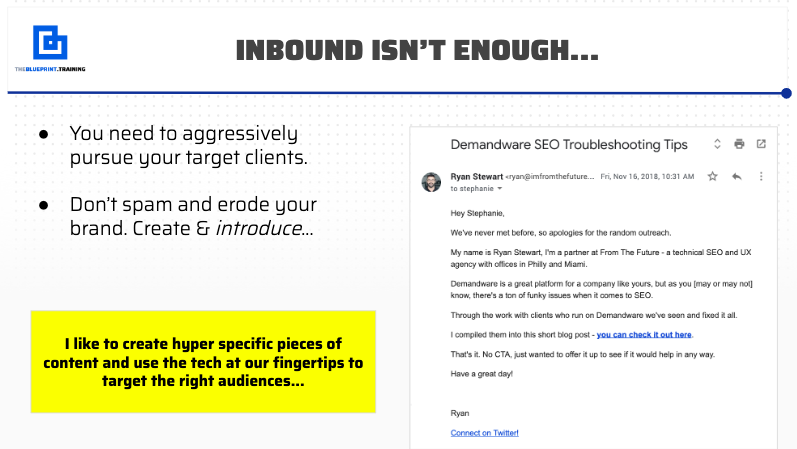
The key to outbound sales is prospecting for the right contacts and sending the right pitch. We don’t want to “spray and pray” on mass cold outreach – it’s annoying.
Let’s review an example I use at our agency.
Demandware is an advanced, expensive CMS for ecommerce businesses – it also has a ton of SEO issues that need to be managed.
I know that any website that runs on Demandware has a ton of SEO issues and a large budget – therefore, they’re a perfect client for us.
- Using Growbots, I’m able to prospect for websites that run on Demandware and find the contact info of members of their marketing team.
- We then send them a cold email with NO PITCH. The email contains an in-depth blog breaking down the issues that Demandware has and how to fix them. No pitch, just value.
- We set up a custom audience in Facebook Ads to remarket to anyone who has visited the blog post. Anytime someone visits that blog post, they’ll get sales messages on Facebook.
- Lastly, we send a follow-up email a week later asking if they had any questions. The goal here is to get them onto a 15 minute phone consultation to discuss issues they’re having.
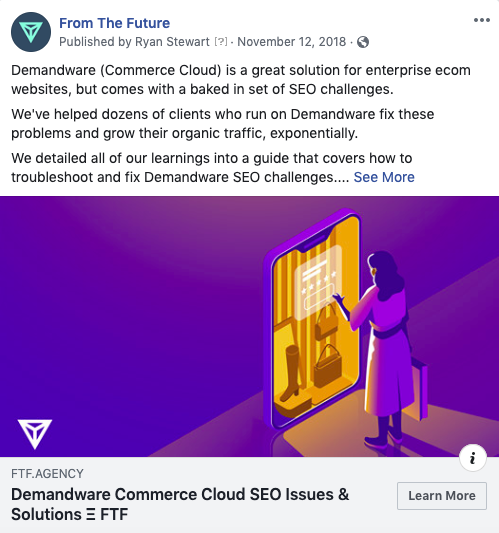
Those are my thoughts on how to attract bigger leads – now let’s talk about how to close the sale.
2. How to close the sale
After you attract the lead, your job isn’t done – you have to convince them to pay you a lot of money to do stuff for them.
This happens during the proposal process.
Mine is pretty straight forward:
Consult call / in person meeting (if possible)
The goal here is to uncover issues and pain points they’re having – the result of the phone call should (ideally) end up in them requesting a proposal for services.
I arrive at this goal by asking a series of leading questions, with insightful follow ups.
For example:
A: We’ve done SEO and link building (let them talk for a while about the details, ask small follow ups to keep them talking)…
While they’re talking, I’ll verify work in various online tools. For example, since they mentioned link building, I’d open up Ahrefs and look at their link profile to judge the quality of the previous work.
Then, I’d follow up.
A: No, we haven’t – I wasn’t even aware the links were bad…
During this conversation I’m building a list of issues + opportunities that I can summarize for them to drive towards a proposal request.
Proposal buildout
I’ve already done this for you AND gave you our proposal template.
You can read the process in detail and grab the template here.
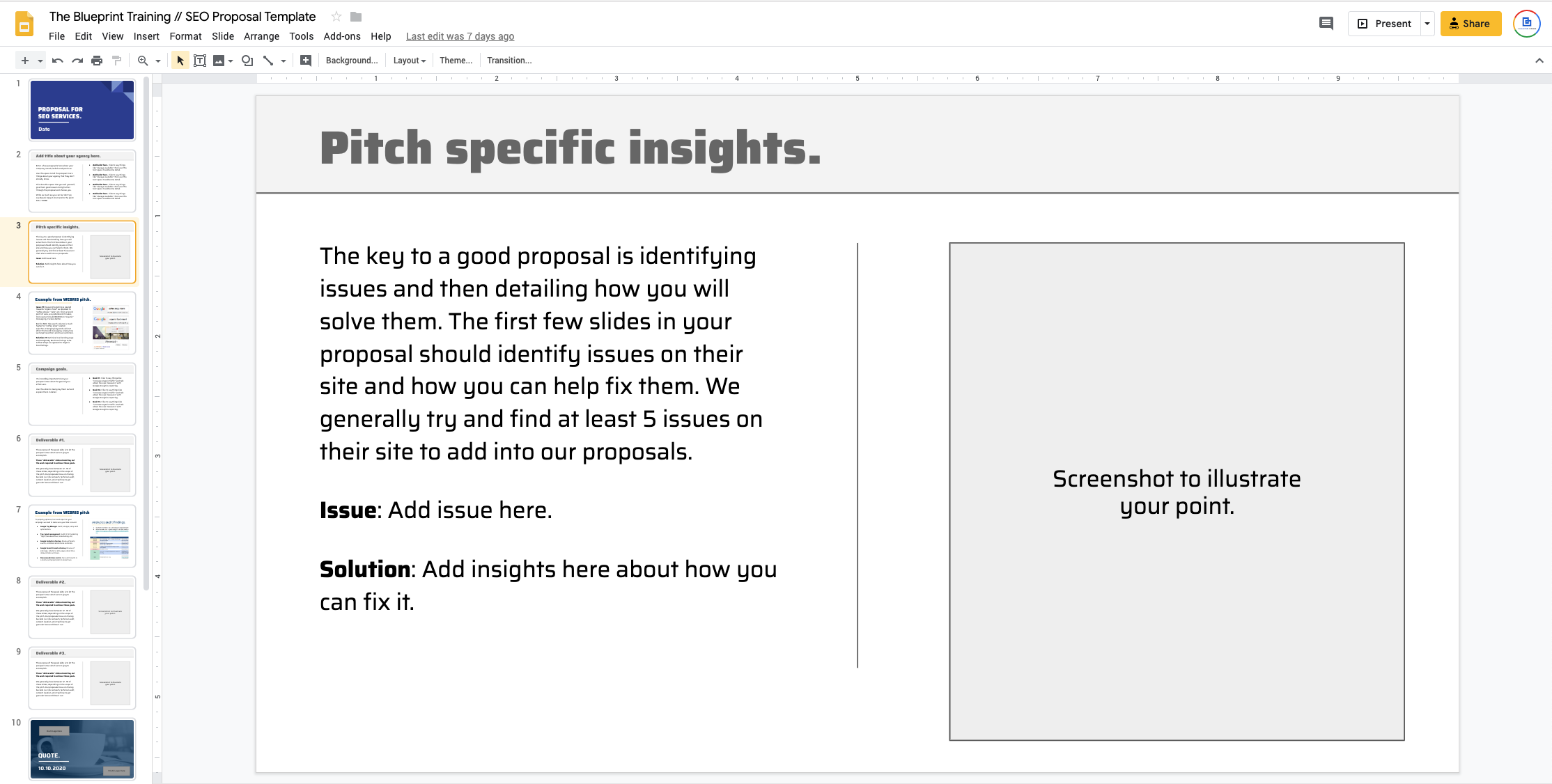
Honestly though, none of this matters if you don’t know how to deliver results for your clients.
3. Delivering high quality work
Marketing isn’t hard – scaling it is.
I’m not going to cover this in this post because…well…we have an entire training platform dedicated to helping agencies scale their service delivery.
If you want to work with larger clients, the quality of your service needs to improve as well. We cover all these things, from deliverables to project management, within The Blueprint platform.
Wrapping It Up
Remember that the quality of your work will determine your reputation and referrals. There’s nothing more important than the work you produce and the talent that you hire to deliver results.
